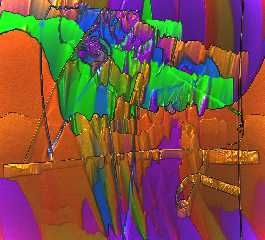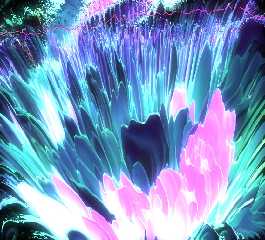 |
 |
|
 |
|
 |
|  |
|  |
|
 |
|
 |
|  |
|  |
|
 |
stbenge wrote:
> The whole point was that I was trying my make an interactive applet,
Oh, I understand that. But I now have a burning curiousity that a video
might at least tell me whether it's interesting to stay curious. :-)
--
Darren New, San Diego CA, USA (PST)
"How did he die?" "He got shot in the hand."
"That was fatal?"
"He was holding a live grenade at the time."
Post a reply to this message
|
 |
|  |
|  |
|
 |
|
 |
|  |
|  |
|
 |
stbenge <myu### [at] hotmail com> wrote:
> Gah!
>
> I was hoping that after downloading the JDK, the process of signing my
> applets (thus making them viewable in a web page, on most computers)
> would become possible. But no. Every turn I make takes me down a path
> fraught with peril. And for what? For an applet that would take up a big
> ol' chunk of my limited web space?
>
> It's just not worth it!
>
> So in order to save what's left of my sanity, I'll release anything I
> make as a standalone application. I realize that this will limit my
> audience, but if I make something truly worth seeing, then the download
> will be worth it. I could then use a file-hosting service to provide
> direct downloads. And, if I ever finish a game, save files will be
> easier to manage.
>
> At least Processing lets me export applications to the Big Three OSs :/
If it's java, why bother about apps for each OS. It's supposed to be
cross-platform by design... ;) com> wrote:
> Gah!
>
> I was hoping that after downloading the JDK, the process of signing my
> applets (thus making them viewable in a web page, on most computers)
> would become possible. But no. Every turn I make takes me down a path
> fraught with peril. And for what? For an applet that would take up a big
> ol' chunk of my limited web space?
>
> It's just not worth it!
>
> So in order to save what's left of my sanity, I'll release anything I
> make as a standalone application. I realize that this will limit my
> audience, but if I make something truly worth seeing, then the download
> will be worth it. I could then use a file-hosting service to provide
> direct downloads. And, if I ever finish a game, save files will be
> easier to manage.
>
> At least Processing lets me export applications to the Big Three OSs :/
If it's java, why bother about apps for each OS. It's supposed to be
cross-platform by design... ;)
Post a reply to this message
|
 |
|  |
|  |
|
 |
|
 |
|  |
|  |
|
 |
> I think if I was going to start throwing my money around, I would get
> one of these:
>
> http://craig.gp2x.de/review/GP2XReview.html
A handheld Amiga? Oh come on, that's irresistible!
Post a reply to this message
|
 |
|  |
|  |
|
 |
|
 |
|  |
|  |
|
 |
On 2/7/2011 4:41 PM, nemesis wrote:
> stbenge<myu### [at] hotmail com> wrote:
>> So in order to save what's left of my sanity, I'll release anything I
>> make as a standalone application.
>> ...
>> At least Processing lets me export applications to the Big Three OSs :/
>
> If it's java, why bother about apps for each OS. It's supposed to be
> cross-platform by design... ;)
I know, I know. It doesn't make sense, yet Processing exports separately
to each. As it turns out, exporting to MacOSX requires..... drum roll
please..... a Mac. So now I'm down to two of the Big Three. :P
Sam com> wrote:
>> So in order to save what's left of my sanity, I'll release anything I
>> make as a standalone application.
>> ...
>> At least Processing lets me export applications to the Big Three OSs :/
>
> If it's java, why bother about apps for each OS. It's supposed to be
> cross-platform by design... ;)
I know, I know. It doesn't make sense, yet Processing exports separately
to each. As it turns out, exporting to MacOSX requires..... drum roll
please..... a Mac. So now I'm down to two of the Big Three. :P
Sam
Post a reply to this message
|
 |
|  |
|  |
|
 |
|
 |
|  |
|  |
|
 |
On 2/8/2011 1:21 AM, Invisible wrote:
>> I think if I was going to start throwing my money around, I would get
>> one of these:
>>
>> http://craig.gp2x.de/review/GP2XReview.html
>
> A handheld Amiga? Oh come on, that's irresistible!
Everything about the GP2X is cool :D
Post a reply to this message
|
 |
|  |
|  |
|
 |
|
 |
|  |
|  |
|
 |
Remember this? ;-)
>> What I can't figure out is
>> how some of the effects that Milkdrop generates are mathematically
>> possible.
>
> OK, you're going to have give me an example... give it over! Pick a
> preset from Milkdrop's standard distribution that epitomizes this
> nearly-impossible effect, and I'll tell you how I *think* it's done.
> Maybe other, more knowledgeable people will join in as well, and we can
> get to the bottom of this thing ;)
Milkdrop has several presets where the screen seems to be covered in
"ink" that somehow "bleeds" in an apparently three-dimensional mannar.
For example, the first attachment. Quite apart from the emboss effect
(which is presumably simple post-processing), different patches of ink
flow down the screen independently, at different rates and in different
directions. And patches somehow *occlude* each other. It's nothing
unusual for newly rendered stuff to occlude existing imagery, but this
preset is doing something altogether more clever.
And then there's the second attachment. It defies my comprehension that
it is somehow possible to do this in realtime. Seemingly thousands of
tiny fingers of colour, all moving and rotating in full 3D. Clearly it's
impossible to hold such a complex structure in memory, so this must be
some kind of 2D trickery with pixel shaders or some such. But I have
absolutely no idea how it's possible. And it looks utterly fantastic, by
the way. It's arguably THE BEST preset in the entire system.
--
http://blog.orphi.me.uk/
http://www.zazzle.com/MathematicalOrchid*
Post a reply to this message
Attachments:
Download 'eg1.jpg' (120 KB)
Download 'eg2.jpg' (134 KB)
Preview of image 'eg1.jpg'

Preview of image 'eg2.jpg'

|
 |
|  |
|  |
|
 |
|
 |
|  |
|  |
|
 |
On 3/3/2011 2:35 PM, Orchid XP v8 wrote:
> Remember this? ;-)
>
>>> What I can't figure out is
>>> how some of the effects that Milkdrop generates are mathematically
>>> possible.
>>
>> OK, you're going to have give me an example... give it over! Pick a
>> preset from Milkdrop's standard distribution that epitomizes this
>> nearly-impossible effect, and I'll tell you how I *think* it's done.
>> Maybe other, more knowledgeable people will join in as well, and we can
>> get to the bottom of this thing ;)
>
> Milkdrop has several presets where the screen seems to be covered in
> "ink" that somehow "bleeds" in an apparently three-dimensional mannar.
>
> For example, the first attachment. Quite apart from the emboss effect
> (which is presumably simple post-processing), different patches of ink
> flow down the screen independently, at different rates and in different
> directions. And patches somehow *occlude* each other. It's nothing
> unusual for newly rendered stuff to occlude existing imagery, but this
> preset is doing something altogether more clever.
For this one I'm guessing that a texture channel is evaluated and then
pushed around on a per-pixel basis. The ink propagates at different
rates due to the varying values of the input texture. In essence, the UV
coordinates of the texture are transformed based on one of the texture's
color channels, thus causing uneven spreading.
> And then there's the second attachment. It defies my comprehension that
> it is somehow possible to do this in realtime. Seemingly thousands of
> tiny fingers of colour, all moving and rotating in full 3D. Clearly it's
> impossible to hold such a complex structure in memory, so this must be
> some kind of 2D trickery with pixel shaders or some such. But I have
> absolutely no idea how it's possible. And it looks utterly fantastic, by
> the way. It's arguably THE BEST preset in the entire system.
Same as the last, but with an added global offset based on the texture
values. Values from one color channel would be used to offset the whole
texture unevenly, resulting in a parallax scrolling effect.
These assumptions are based on my own dealings with similar systems. I
achieved a pseudo 3D effect using the principles I described. It looks
like a flowing height_field, and it's actually very similar to one. I
couldn't get my ridges to occlude other ridges, though.
When you watch the second example, do the ridges seem to "eat away" the
texture behind them?
Having not seen these presets in action, I can't say for certain whether
my assumptions are correct :/
Sam
Post a reply to this message
|
 |
|  |
|  |
|
 |
|
 |
|  |
|  |
|
 |
On 3/3/2011 2:35 PM, Orchid XP v8 wrote:
> Remember this? ;-)
Ack! Thunderbird nearly pushed your reply out of its cache, and the
web-version of OT doesn't show this thread at all. I should check up on
the newsgroups I post in...
Post a reply to this message
|
 |
|  |
|  |
|
 |
|
 |
|  |




![]()